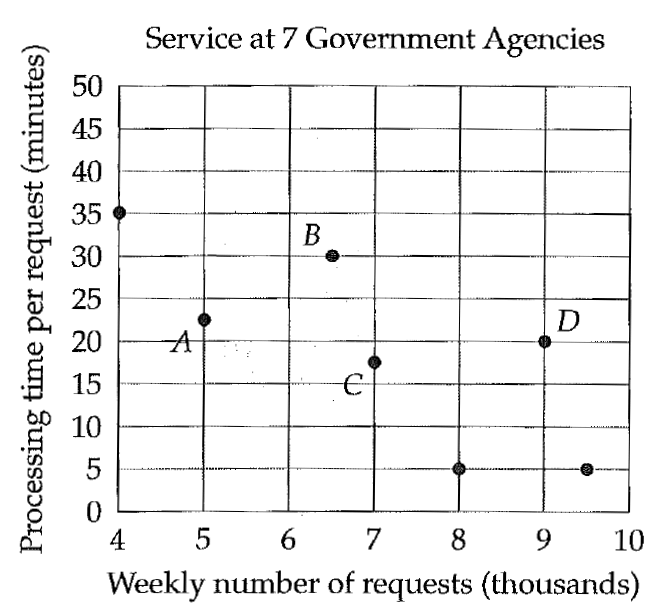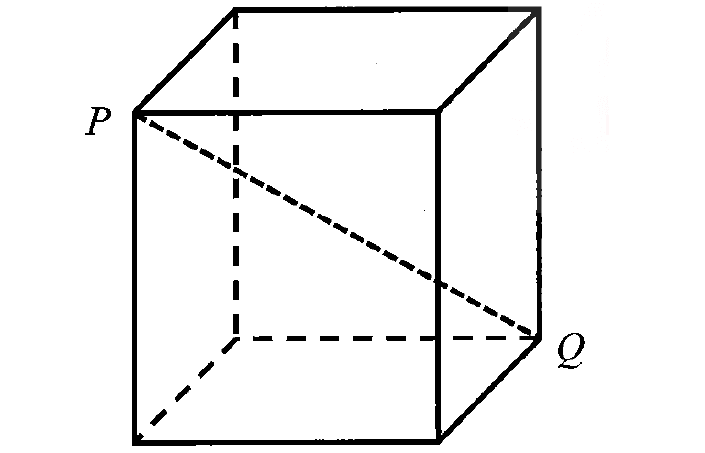SOLVING QUADRATIC EQUATION BY FACTORING PRACTICE
Solve the following quadratic equations by factorization
method.
(i) (2x + 3)2-81 = 0
(ii) 3x2–5x–12 = 0
(iii) √5 x2+2x–3√5 = 0
(iv) 3(x2–6) = x(x+7)–3
(v) 3x–(8/x) = 2
(vi) x+(1/x) = (26/5)
(vii) [x/(x+1)] + [(x + 1)/x] = 34/15
(viii) a2b2x2 – (a2 - b2) x + 1 = 0
(ix) 2(x + 1)2 – 5 (x + 1) = 12
(x) 3 (x – 4)2 – 5(x – 4) = 12
Solution
Question 1 :
3x2–5x–12 = 0
Solution :
3x2–5x–12 = 0
3x2–9x+4x–12 = 0
3x(x–3)+4(x–3) = 0
(3x+4) (x-3) = 0
|
3x+4 = 0 3x = -4 x = -4/3 |
x-3 = 0 x = 3 |
So, the solution is {-4/3, 3}.
Question 2 :
(2x + 3)2-81 = 0
Solution :
(2x + 3)2-81 = 0
(2x + 3)2 = 81
Taking square roots on both sides, we get
(2x + 3) = √81
(2x + 3) = ±9
|
2x+3 = 9 2x = 6 x = 3 |
2x+3 = -9 2x = -12 x = -6 |
So, the solution is {-6, 3}.
Question 3 :
√5x2+2x–3√5 = 0
Solution :
√5x2+5x-3x–3√5 = 0
√5x(x+√5)–3(x+√5) = 0
(√5x–3)(x+√5) = 0
|
√5x–3 = 0 √5x = 3 x = 3/√5 |
x + √5 = 0 x = -√5 |
So, the solution is {-√5, 3/√5}.
Question 4 :
3(x2–6) = x(x+7)–3
Solution :
3(x2–6) = x(x+7)–3
3x2–18 = x2+7x–3
3x2-x2–7x–18+3 = 0
2x2–7x–15 = 0
2x2–10x+3x–15 = 0
2x(x–5)+3(x–5) = 0
(2x+3)(x–5) = 0
|
2x+3 = 0 2x = -3 x = -3/2 |
x-5 = 0 x = 5 |
So, the solution is {-3/2, 5}.
Question 5 :
3x – (8/x) = 2
Solution :
(3x2 – 8)/x = 2
(3x2 – 8) = 2x
3x2-2x–8 = 0
3x2-6x+4x–8 = 0
3x(x–2)+4(x–2) = 0
(3x+4) (x–2) = 0
|
3x+4 = 0 3x = -4 x = -4/3 |
x-2 = 0 x = 2 |
So, the solution is {-4/3, 2}.
Question 6 :
x+(1/x) = (26/5)
Solution :
(x2 + 1)/x = 26/5
5(x2+1) = 26x
5x2+5 = 26x
5x2-26x+5 = 0
5x2-25x–x+5 = 0
5x(x-5)–1(x–5) = 0
(5x–1) (x–5) = 0
|
5x-1 = 0 5x = 1 x = 1/5 |
x-5 = 0 x = 5 |
So, the solution is {1/5, 5}.
Question 7 :
[x/(x+1)]+[(x+1)/x] = 34/15
Solution :
[x/(x+1)]+[(x+1)/x] = 34/15
[x2+(x+1)2]/[x(x+1)] = 34/15
[x2+(x2+2x+1)]/(x2+x) = 34/15
15 (2x2+2x+1) = 34 (x2+x)
30x2+30x+15 = 34x2+34x
34x2-30x2+34x–30x–15 = 0
4x2+4x–15 = 0
4x2+10x-6x–15 = 0
2x(2x+5)–3(2x+5) = 0
(2x–3)(2x+5) = 0
|
2x-3 = 0 2x = 3 x = 3/2 |
2x+5 = 0 2x = -5 x = -5/2 |
So, the solution is {-5/2, 3/2}.
Question 8 :
a2b2x2– (a2-b2)x+1 = 0
Solution :
a2b2x2– (a2-b2)x+1 = 0
a2b2x2– a2x+b2x+1 = 0
a2x (b2x–1)-1(b2x–1) = 0
(b2x–1) (a2x–1) = 0
|
b2x–1 = 0 b2x = 1 x = 1/b2 |
a2x–1 = 0 a2x = 1 x = 1/a2 |
So, the solution is {1/a2, 1/b2}.
Question 9 :
2(x+1)2 – 5(x+1) = 12
Solution :
Let y = x+1
2y2–5y = 12
2y2–5y–12 = 0
2y2–8y+3y–12 = 0
2y(y–4)+3(y–4) = 0
(2y+3) (y–4) = 0
|
2y+3 = 0 2y = -3 y = -3/2 |
y-4 = 0 y = 4 |
Now we have to apply the values of y in the equation
y = x + 1
|
x+1 = -3/2 x = (-3/2) - 1 x = -5/2 |
x+1 = 4 x = 3 |
So, the solution is {-5/2, 3}.
Question 10 :
3(x–4)2– 5(x – 4) = 12
Solution :
Let y = x – 4
3y2–5y = 12
3y2–5y–12 = 0
3y2–9y+4y-12 = 0
3y(y–3)+4(y–3) = 0
(3y+4)(y–3) = 0
|
3y+4 = 0 3y = -4 y = -4/3 |
y-3 = 0 y = 3 |
To find the value of x we have to apply the values of y in the equation x = y + 4.
|
x = (-4/3)+4 x = 8/3 |
x = 3+4 x = 7 |
So, the solution is {8/3, 7}.
Kindly mail your feedback to v4formath@gmail.com
We always appreciate your feedback.
©All rights reserved. onlinemath4all.com
Recent Articles
-
Digital SAT Math Problems and Solutions (Part - 153)
Apr 29, 25 12:18 PM
Digital SAT Math Problems and Solutions (Part - 153) -
Digital SAT Math Problems and Solutions (Part - 152)
Apr 28, 25 11:54 AM
Digital SAT Math Problems and Solutions (Part - 152) -
Digital SAT Math Problems and Solutions (Part - 151)
Apr 26, 25 11:18 AM
Digital SAT Math Problems and Solutions (Part - 151)

